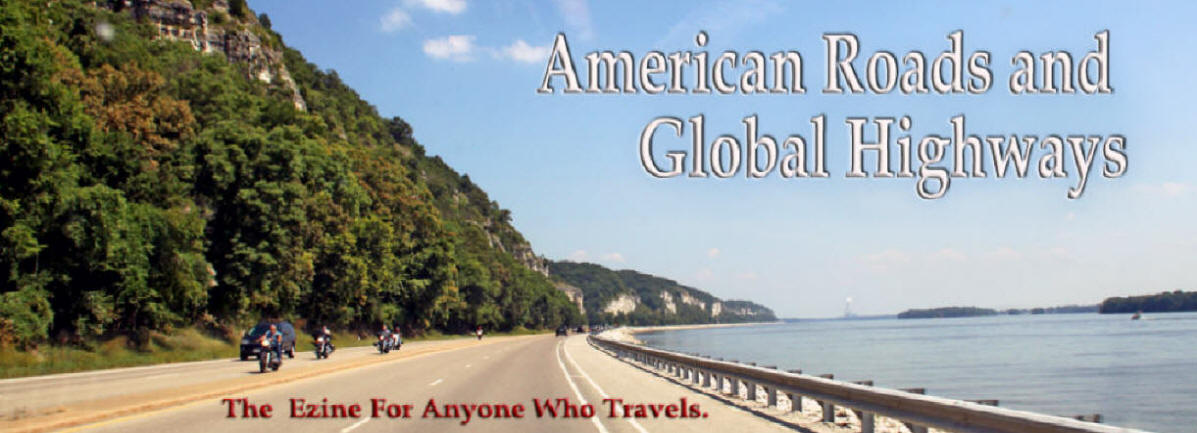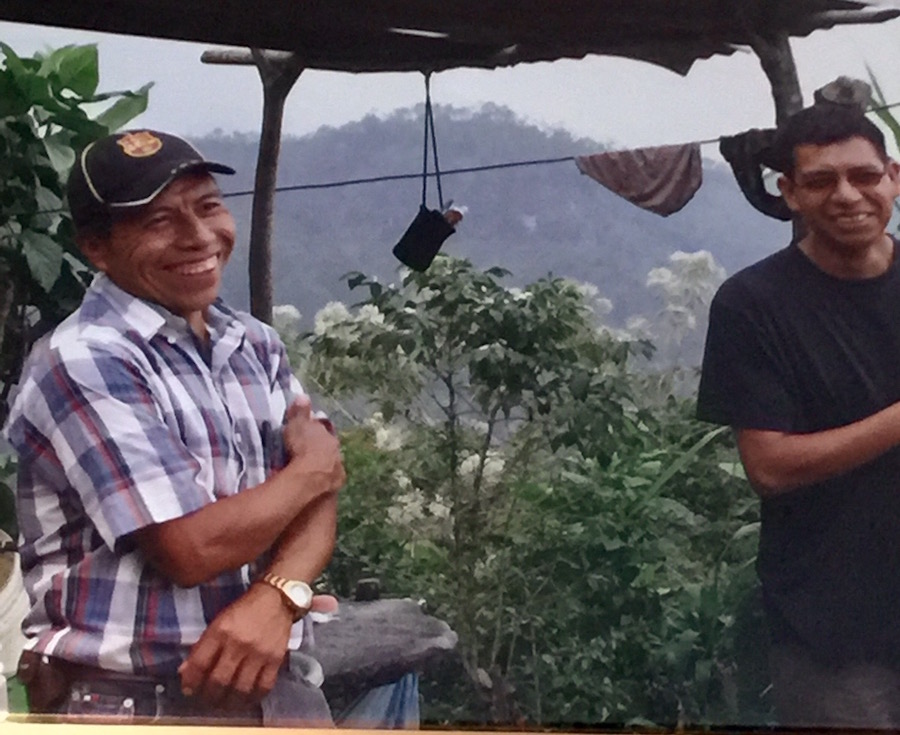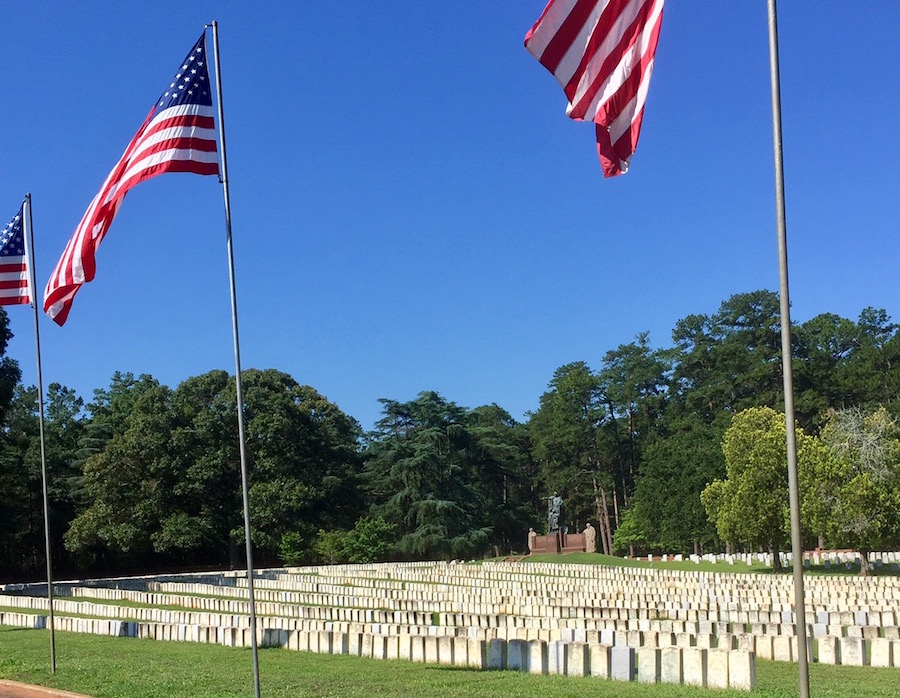
|
|
|
|
|
National Park Service rangers tell
tales of shocking conditions endured by prisoners of war
in Andersonville Prison, and also by POWs throughout
American history. With a little guidance and
particular intention, visiting Southwest Georgia gives
deep meaning to the ways people have treated one another
through the decades – and how some are doing so today
with deep care and concern. Call it a Human Rights Trail, but
don't look for wayfinding signs.
This is a personal journey, taking
to each experience your own world view. . . and drawing
from every stop deep meaning if you so choose.
Allocate at least three days.
Longer is better if you intend to engage fully. Even
longer than that is a great idea to add in fun stuff
like kayaking on the secluded Flint River and entering
the African veldt at Chehaw, the 800-acre nature park
with 100 acres, an American Zoological Association
accredited zoo. Build in time for lingering
breakfasts, lunches and dinners. Doesn't matter you
didn't already know Georgia's Albany is equally at home
with traditional Southern cultural cooking as well as
with trendy tastes and new culinary discoveries. Set your suitcase down at Merry
Acres Inn in Albany and do short road trips to the
neighboring communities.
Coffee,
construction, communal living Four specific experiences in
Americus link human rights in profound ways, richer by
thinking of them together. One's all
about the past, and two engage people in this town of
17,000 every day as they honor the dignity of others
around the globe. Yet another creates a community in
year-long internships sharing values of hospitality,
sustainability, kindness and fairness. Each offers ample opportunity for visitors. · Cafe Campesino · Global Village Discovery Center · Koinonia Farm
·
Andersonville National Historic Site Start this human rights journey
with coffee, or tea, breakfast or lunch. At
Cafe
Campesino coffee roasters commit to being fair,
celebrating people, doing the right thing and walking
the talk.
That's why they work with small
scale farmers in coffee lands around the globe, shaping
co-ops with fair pay. Don't take my word, or theirs.
Contracts are transparent, posted online, receiving
third-party certification as a Certified B Corp. Meet their farmer partners through
photographs filling the walls of the cafe, along with
original paintings and weavings by artisans in the lands
of shade grown, organic coffee. Twelve acres: that's the
farm size a of Cafe Campesino grower. Here's why I think meeting the
folks in this 19-year-old coffee business matters.
They're redefining what success means in business. Human
rights rank at the top. Across the street from the coffee
roasting facility is a trip around the world, where
Habitat for Humanity's international headquarters
invites visitors into houses just like the ones they
build uniquely suited to conditions in each country.
Global
Village and Discovery Center is the name. Walk
paved paths to visit homes just like the ones making a
difference for 9.8 million people in 70 countries. Teaching that one in five people in
the world live in poverty and unstable conditions,
Habitat's village opens with a settlement intended to be
temporary living but continuing as the only option for
many families. Sobering this part of the human
rights journey in Southwest Georgia. Uplifting too with
the Habitat guiding principles: sweat equity from the
recipients of a home, no profit for Habitat, an
affordable mortgage for the new resident. Self-reliance
– not vulnerability -- is the goal. Just stroll the village, or dig a
little deeper into the realities of global poverty with
a documentary film, signage throughout the site and
conversations with knowledgeable staff. Good idea to reflect awhile here
before continuing on the human rights trail.
Difficult to say, easy to visit.
Coy-no-nee-a
I think nails the pronunciation.
This is a hospitable place and I
highly recommend asking for a tour and lunch. People are
the point, and sharing a meal and stroll around the
grounds opens conversation. Living here on purpose, with
intention, is the point. Men and women, of color and
white, some with kids, engage in year-long internships.
They like the idea of community being a house and church
all in one, each person committed to the others.
Visitors like me on the human
rights trail aren't necessarily committed likewise, but
the chance to be among people of purpose is affirming.
Koinonia residents raise pecans,
grapes and blueberries, grassfed beef and pastured hogs,
chickens for eggs and other produce. Farming
biologically to them means no herbicides, fungicides,
insecticides. Guess what: they partner with Cafe
Campesino for 100 percent fair trade coffee. Cinnamon
spiced pecans, granola, peanut butter, jams and jellies
are among the foods prepared on site and available on
line.
Life wasn't always as calm as
you'll find it at Koinonia. Watch the hour-long
documentary of historic footage for the facts. As an
interracial community in the late 1950s and early ‘60s,
the communal house church farm created a stir in Jim
Crow South. Now retreats are possible, leisure
travelers can spend a night or several in cottages for a
modest fee of $50, or visitors can camp and park RVs.
Snowbirds have been known to stay all winter. Kids have a special place at
Koinonia too; Peacebuilders Camp lasts a week for youth
ages 11 – 14. The peace and justice agenda? Farm life,
sports, games, field trips, exploring stories about past
and present peacemakers – and learning about human
rights.
Andersonville
National Historic Site offers a vital component
along this trail of human rights discovery. Desolation
and despair at this Civil War prison are today replaced
with remembrance and reflection. It's also so complex and robust
that a full day stay is not too long. Plan on a lot of
walking to get up close, or choose the free audio tour
and take your car from spot to spot. Arrive anticipating stillness.
Thoughtfulness. Respect. Even the white-tailed deer I
saw along long wooded driveway winding into the grounds
seemed somber and hushed.
Pack a lunch from an Albany eatery,
or at Cafe Campesino so you can stay all day.
Highlights include: · America's National Prisoner of War Museum · The prison site where 13,000 soldiers died in 14 months, mostly from disease and starvation · Andersonville National Cemetery, where prisoners were buried in trenches and today's veterans in proper graves Human rights considerations are
abundant, and stories about the people in Andersonville
Prison add depth to the actual quotes from survivors. Consider this one: A 19-year-old prisoner from New
York was assigned to work in the Andersonville hospital
where he secretly recorded names and burial sites,
smuggling the list out when he was released.
Dorence Atwater teamed up with
battlefield nurse Clara Barton and a US Army
Quartermaster expedition to mark those graves, an
astonishing 95 percent identified. If you notice headstones very close
together in some cemetery sections, that's because
Atwater also knew men were buried together in trenches.
Mark your
calendar April 2018 the National Prisoner of
War Museum at Andersonville will be 20 years old. Good
chance the National Park Service will seal that
anniversary in comprehensive, meaningful, respectful
ways.
Albany
eateries with a human rights flavor
Signature dishes for more than 45
years: fried chicken, oxtails, chitterlings, oxtails and
peach cobbler. Family style tables, buffet serving,
abundant vegetables and cornbread.
Just a block or two from the Civil
Rights Institute and Mt. Zion Baptist Church where the
Freedom Singers perform second Saturdays every month at
1:00 p.m. Pearly's Famous Country Cooking Breakfast and lunch fare cooked as ordered, closing at 2:00 p.m., no Sunday hours. Profit sharing, paid vacations,
fair wages. Management view "Care where you're going,
not where you've been. Windshields more important than
rear-view mirrors." Stewbos Entrepreneurs Stewart Campbell and Bo Henry appear to weave their business and lifestyle philosophies into lodging and dining. That enhanced the human rights journey for me experiencing three of their properties: Merry Acres Inn, The Catch, Harvest Moon. They have more.
For more information:/p> 87877-750-0840 Guidance for Albany and for day-trip destinations nearby including Americus and Plains.
|
Connect with us on:p>
American Roads and | ||
|
Public Disclosure--
Please Read I recently learned of a FTC law requiring web sites to let their readers know if any of the stories are "sponsored" or compensated. American Roads and Global Highways' feature writers are professional travel writers. As such we are frequently invited on press trips, also called fam trips. Most of the articles here are results of these trips. On these trips most of our lodging, dining, admissions fees and often plane fare are covered by the city or firm hosting the trip. It is an opportunity to visit places we might not otherwise be able to visit and bring you a great story. However, no one tells us what to write about those places. All opinions are 100% those of the author of that feature column. |
|||
|
Privacy Policy/ Archives /
Contributors /
Subscribe to
American Roads Books by
Kathleen Walls /
Contact /
Sponsor or Advertise/ American Roads & Global Highways Home Page
|


















